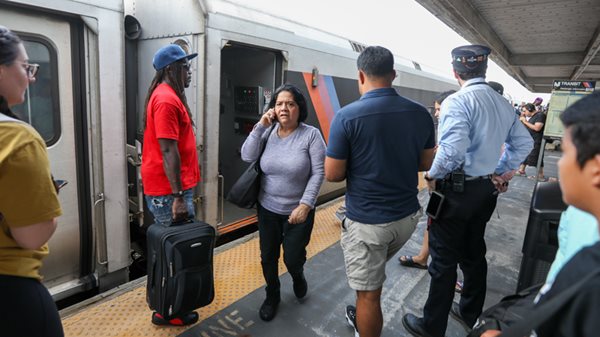The Association of Commuter Transportation defines Transportation Demand Management (TDM) as “the use of strategies to inform and encourage people to maximize the efficiency of our transportation systems; leading to improved mobility, reduced congestion, and lower carbon emissions.”
In practice, TDM has mainly involved measures to reduce reliance on single occupancy vehicles and for bolstering transit use. Some strategies (adapted from the Mobility Lab in Arlington, Virginia) are:
- Shifting priority away from driving alone, such as high-occupancy vehicle or HOV lanes; dedicated bus and bike lanes; bikesharing; congestion pricing; and dynamic pricing for on-street parking.
- Collaborating with employers on transit benefits and subsidies; sponsored vanpools and carpools; eliminating or reducing free parking; flexible work schedules or telework; and guaranteed rides home for non-drivers.
- Improving public transportation including subsidized fares or transit passes; providing connections to/from transit; offering on-demand or flexible services; and expanding housing near transit.
- Educating people about their transportation options such as marketing programs, bicycling safety classes and multimodal awareness events.
 Ed Murray
Ed Murray
The Clean Air Act of 1970 initiated the use of TDM measures to reduce pollution in areas that do not comply with national clean air standards. Federal funding programs supporting TDM include the following:
- Congestion Mitigation Air Quality program, which provides flexible funds for local clean air activities including shuttle buses and transit improvements;
- Transportation Alternatives Set-Aside program which funds non-traditional strengthen the cultural, aesthetic, and environmental aspects of transportation including new off-road trails and historic preservation; and
- Carbon Reduction Program which seeks to limit the climate and environmental impacts of fossil fuels Through activities such as supporting vehicle electrification and renewable energy.
Some state and local laws require TDM. Washington and Oregon mandate trip reduction measures by employers with 100 or more workers. Many cities and towns in California and elsewhere have similar ordinances in place. Non-profit Transportation Management Associations promote and support TDM across the country.
Many companies seeking to reduce their environmental impacts embrace TDM policies. This includes demonstrating continuous improvements required to gain certification for best environmental workplace practices called ISP14000.